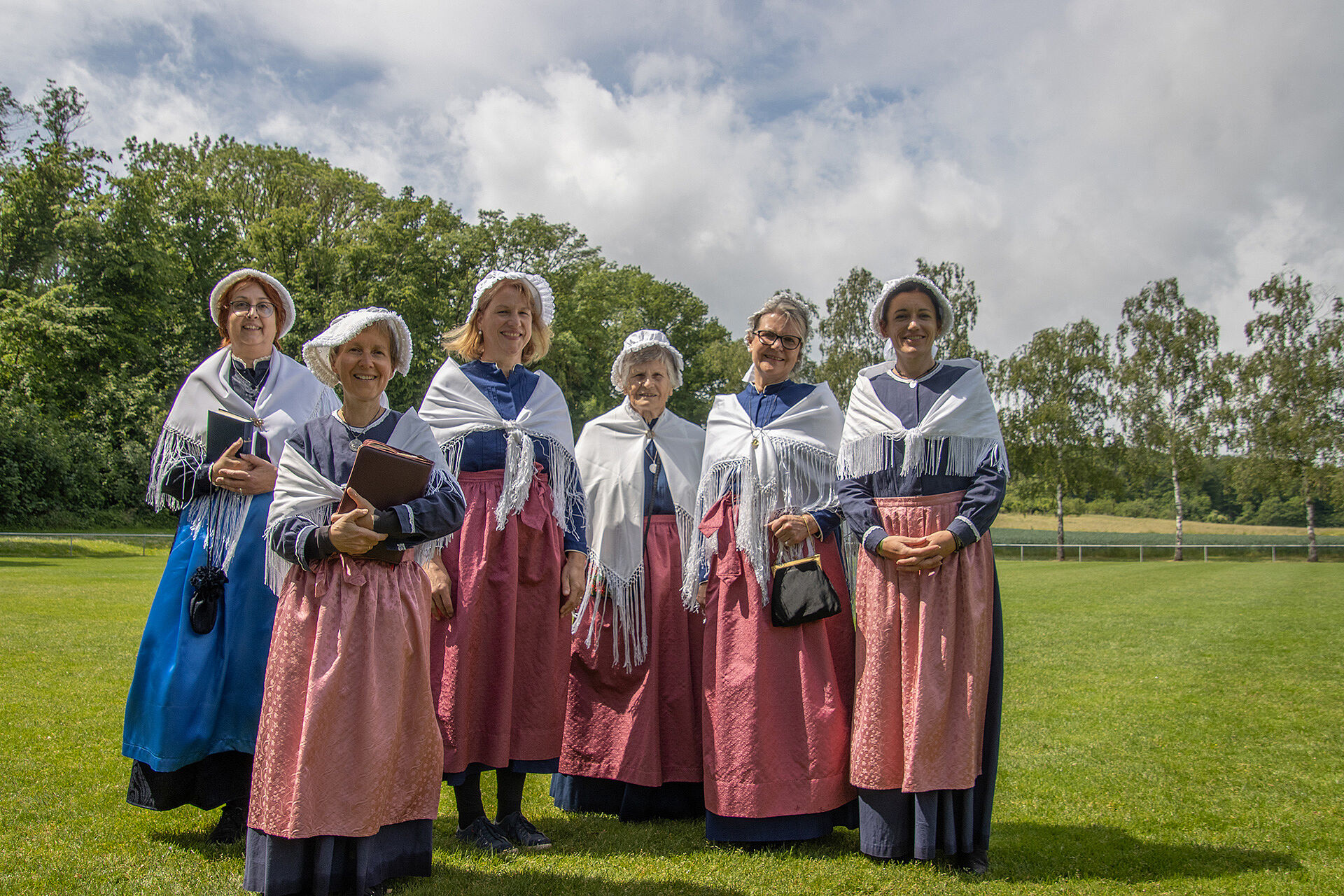Wednesday, 16. July 2025
Walking to stay Alive
The Waldensians in Württemberg

There are always situations where people have to leave their old homes and find new ones. Of course, there are many reasons for this. The Waldensians, a persecuted Protestant minority in Italy, were forced to leave their mountain villages in Piedmont because they could no longer live there in safety and in peace. The rulers gave them the choice of renouncing their faith, dying or going into exile.
So in 1699, a group of Waldensians decided to head north. In order to stay Protestant and survive, they found a new home, settling in what was then the Duchy of Württemberg, and founded towns such as Kleinvillars, Grossvillars, Perouse, Pinache, Palmbach (now in Baden) and Nordhausen. At first, they remained a religious community separate from the Protestant churches of Württemberg and Baden, but they eventually became part of them. Over the course of time, they were gradually integrated and assimilated into German society. Today, the communities are proud of their very special past and they consider it important to preserve their heritage. This is why the German Waldensian Association and a beautiful Waldensian museum in Ötisheim-Schönenberg were created in the house that served as the rectory for Henri Arnaud, leader of the first Waldensians.
For me personally, there were other reasons for leaving my old home after growing up in Karlsruhe and studying Protestant theology. I wanted to spend some years serving in the Waldensian Church, partly because I was now married to an Italian Waldensian. I found the challenges facing this small but socially relevant church an exciting prospect, and I wanted to support it with what I had learned.
So I lived in Italy with my husband, and later with our two sons, for more than 20 years, working as a pastor in various congregations. And I was very happy to discover every year at the synod in Torre Pellice that the Waldensian Church (which had always been very short of financial resources for centuries) was supported by the Italian cultural tax ‘Otto per mille’ (English: ‘8 per thousand’) to support other organisations in their social, cultural and ecological projects. Right from the start, the Waldensian Church decided not to use tax money for church purposes, but only for social and cultural projects, including those outside its own church.
Today, 50% of these funds are channelled to international projects. More than ten years ago, the Evangelical Mission in Solidarity (EMS) reached an agreement with the Waldensian church leadership that some of its projects, e.g. in Indonesia, India, South Africa and Ghana, would receive approximately €300,000 per year in subsidies. This agreement came about because the Waldensians turned to the Protestant churches of Baden and Württemberg in their search for an organisation that was involved in overseas projects, knew its way around them and could guarantee monitoring and evaluation. With the support of the Waldensians, the EMS can now help to ensure that fewer people are forced to leave their homes, even if they actually want to stay, e.g. through projects that foster conflict resolution and dialogue.
Dorothee Mack